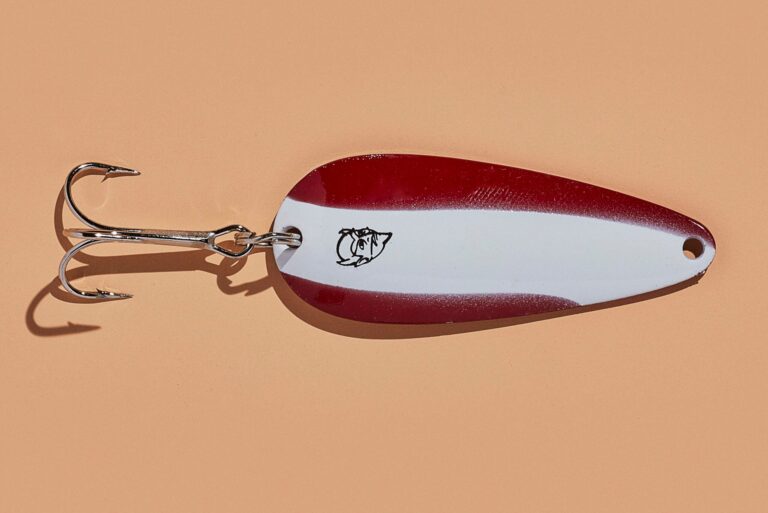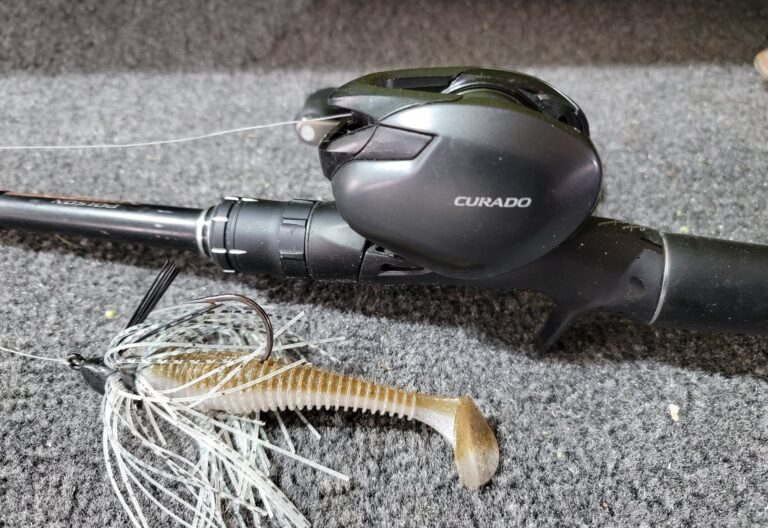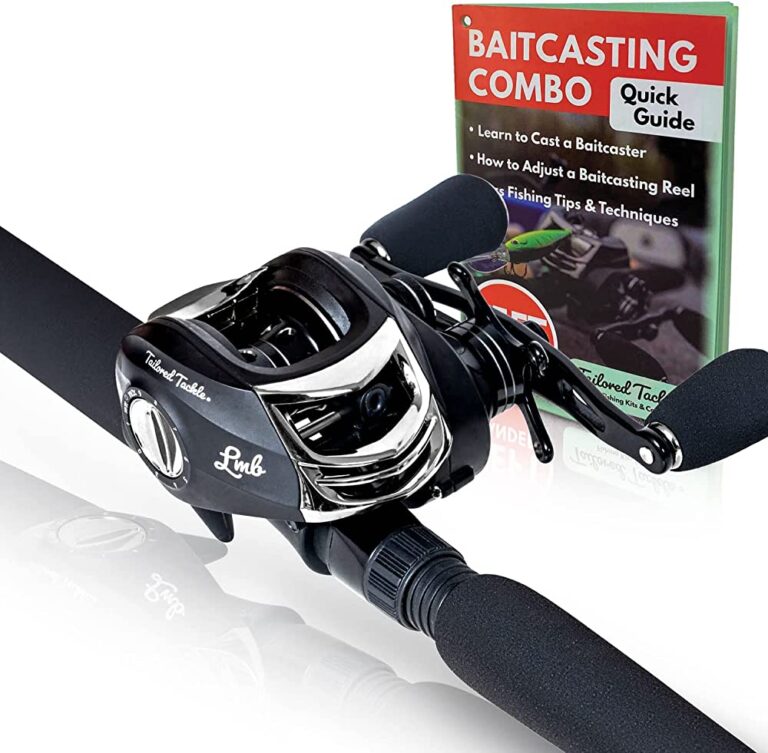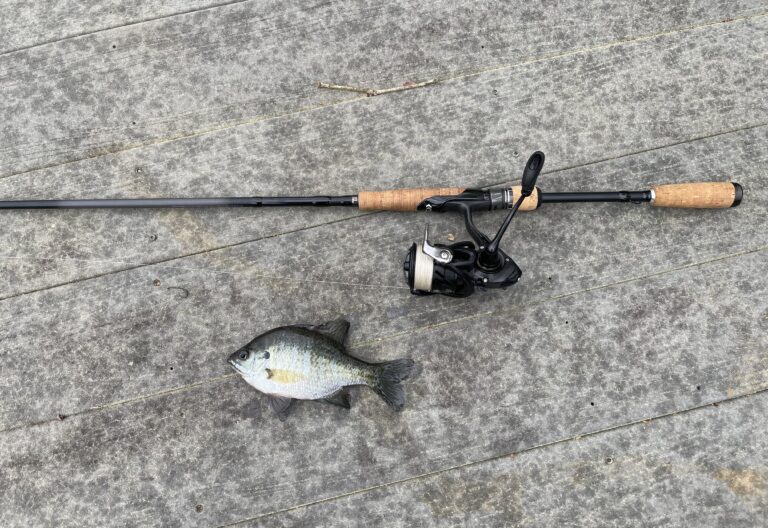A one-piece spinning rod is made of a single continuous piece of material, while a two-piece spinning rod is made up of two separate sections that can be connected together. One-piece rods are generally more sensitive and have better overall performance, but they can be less convenient for transportation.
Two-piece rods offer more flexibility and are easier to transport, but they may sacrifice some sensitivity and overall performance compared to one-piece rods. Fishing enthusiasts often face the dilemma of choosing between a one-piece spinning rod and a two-piece spinning rod.
Each option has its own set of advantages and disadvantages. A one-piece spinning rod is constructed from a single uninterrupted piece of material and is renowned for its superior sensitivity and performance. However, due to its rigid structure, it can be less convenient to transport. On the other hand, a two-piece spinning rod consists of two separate sections that can be easily connected, making it more portable and suitable for travel. Nonetheless, it may not offer the same level of sensitivity and optimal performance as a one-piece rod. Ultimately, the decision depends on one’s individual fishing preferences and requirements.

Credit: issuu.com
Understanding The Difference Between One-Piece And Two-Piece Spinning Rods
When it comes to choosing the perfect spinning rod for your fishing needs, one important decision you’ll need to make is whether to go for a one-piece or a two-piece design. Both options have their own set of advantages and considerations, so it’s crucial to understand the key differences between them before making your final decision.
In this section, we’ll explore the factors to consider when choosing a spinning rod and dive into the nuances of one-piece and two-piece designs.
Factors To Consider When Choosing A Spinning Rod
Before delving into the specifics of one-piece and two-piece spinning rods, let’s take a look at the essential factors you should consider when making your selection:
- Fishing style: The type of fishing you enjoy will heavily influence your choice of spinning rod. Determine whether you prefer freshwater or saltwater fishing, as well as the specific species you’ll be targeting. This information will help you determine the rod length, power, and action that best suits your needs.
- Transportation and storage: If you frequently travel with your fishing gear, the convenience of transportation and storage becomes a vital consideration. One-piece rods tend to be longer and may present challenges when it comes to packing them into small vehicles or storing them in limited spaces. On the other hand, two-piece rods can be easily disassembled for hassle-free transportation and compact storage.
- Sensitivity and strength: The sensitivity and strength of a spinning rod are crucial for detecting bites and reeling in fish successfully. While one-piece rods typically exhibit higher sensitivity due to their continuous blank construction, two-piece rods may sacrifice a small amount of sensitivity for additional strength. Consider the trade-off between sensitivity and durability based on the target species and fishing conditions.
- Casting distance: If you’re aiming for long-distance casting, the length and action of the spinning rod play key roles. One-piece rods often provide enhanced casting distance due to their longer length, which helps generate greater rod tip speed and better leverage. However, advancements in technology have made two-piece rods comparable in terms of casting distance, making it less of a deciding factor these days.
One-Piece Spinning Rods
- Exceptional sensitivity: One-piece spinning rods are known for their superior sensitivity. Their continuous blank construction allows for uninterrupted transmission of vibrations, making it easier to detect even the slightest nibble. Anglers who prioritize feel and responsiveness will appreciate the sensory benefits of a one-piece rod.
- Enhanced power and durability: With no joint or connection points, one-piece rods exhibit optimal power and durability. They offer superior backbone strength for battling large fish and handle heavy load pressures more effectively. If you frequently target hard-fighting species or enjoy fishing in challenging environments, a one-piece rod may be your best bet.
- Balanced flex and action: One-piece spinning rods provide a consistent flex profile along the entire length of the rod. This balanced flex translates into smooth action and improved casting accuracy, ultimately enhancing your overall fishing experience. Anglers who prioritize precision and control will find the seamless flex of a one-piece rod beneficial.
Two-Piece Spinning Rods
- Convenient transportation and storage: The main advantage of a two-piece spinning rod is its convenience when it comes to transportation and storage. The ability to break down the rod into two smaller sections makes it easier to fit into travel cases, backpacks, or the trunk of your car. If you’re a frequent traveler or have limited storage space, a two-piece rod offers the flexibility you need.
- Versatile and interchangeable: Two-piece spinning rods provide anglers with the option to interchange different rod sections to accommodate varying fishing conditions. This versatility allows you to adjust the rod length, change the power, or swap out a damaged section without replacing the entire rod. The ability to adapt to different situations can be a game-changer for anglers who require a versatile fishing setup.
- Worthy competitors in performance: Modern advancements in rod engineering have significantly improved the performance of two-piece spinning rods. Many manufacturers now produce high-quality two-piece rods that rival their one-piece counterparts in terms of sensitivity, strength, and casting distance. Choosing a two-piece rod no longer means compromising on performance.
The choice between a one-piece and a two-piece spinning rod ultimately depends on your individual preferences, fishing style, and travel requirements. Both options offer unique benefits, and with the advancements in rod technology, two-piece rods have become formidable competitors to the traditional one-piece design.
Consider your angling needs, prioritize the factors discussed above, and make an informed decision when selecting the ideal spinning rod that will enhance your fishing expeditions.
Enhanced Sensitivity And Power
One of the key factors that differentiate a one-piece spinning rod from a two-piece spinning rod is the enhanced sensitivity and power it provides. Let’s delve into the reasons why one-piece rods excel in these aspects.
The Rigid Construction Of One-Piece Spinning Rods
- One-piece spinning rods are crafted from a single, continuous piece of material, typically graphite or carbon fiber. As a result, they offer superior rigidity compared to their two-piece counterparts.
- The absence of joints or connectors in one-piece spinning rods eliminates any potential weak points, ensuring a consistent and rigid structure throughout the entire rod.
- The rigidity of one-piece spinning rods contributes to enhanced sensitivity, as it allows for immediate transmission of vibrations from the rod tip to the angler’s hands.
How One-Piece Rods Provide Better Sensitivity
- The lack of joints or connectors in one-piece spinning rods means that there is less loss of energy during casting or retrieving, resulting in better sensitivity. The energy produced while casting is efficiently transferred down the rod and into the angler’s hands.
- The heightened sensitivity of one-piece spinning rods allows anglers to detect even the subtlest of strikes or movements, giving them a distinct advantage when targeting shy or finicky fish species.
- Due to their improved sensitivity, one-piece spinning rods enable anglers to make precise and accurate casts, enhancing their chances of landing their desired target.
The Power Transfer Advantage Of One-Piece Spinning Rods
- The single-piece construction of one-piece spinning rods facilitates optimum power transfer from the angler to the rod, resulting in greater casting distance and control.
- With minimal energy loss through joints or connectors, one-piece spinning rods allow anglers to generate more power during casting and retrieve, enabling them to cast heavier lures or baits farther.
- The enhanced power transfer also enables anglers to effectively maneuver and control fish during the fight, providing them with the upper hand when battling larger or more aggressive species.
The rigidity of one-piece spinning rods, coupled with the absence of joints or connectors, affords them enhanced sensitivity and power. Their seamless construction allows for immediate transmission of vibrations, leading to better sensitivity and detection of strikes. Additionally, the optimized power transfer empowers anglers with increased casting distance and control.
Improved Casting Performance
Spinning rods are essential tools for anglers, allowing them to cast their lines with precision and efficiency. When it comes to choosing the right spinning rod, one of the key considerations is whether to opt for a one-piece or a two-piece model.
In this blog post section, we will focus on the improved casting performance offered by one-piece spinning rods.
The Action And Taper Of One-Piece Spinning Rods
One of the main factors that contribute to the enhanced casting performance of one-piece spinning rods is their action and taper. Here are the key points to consider:
- One-piece action: The action of a fishing rod refers to its flexibility and responsiveness. One-piece spinning rods have a consistent and uniform action throughout the entire length of the rod. This allows for better control and sensitivity when casting, resulting in improved accuracy and distance.
- Taper design: The taper of a fishing rod refers to its thickness and flexibility at various points along its length. One-piece spinning rods generally have a faster taper, which means they are stiffer towards the base and gradually become more flexible towards the tip. This enables anglers to generate higher line speeds and achieve longer casts.
Enhanced Accuracy And Distance In Casting
The improved casting performance of one-piece spinning rods translates into enhanced accuracy and distance. Here are the key points to consider:
- Better control: The consistent action and stiffness of one-piece spinning rods provide anglers with greater control over their casts. This allows for precise placement of the lure or bait, especially when targeting specific areas or structures in the water.
- Increased sensitivity: One-piece spinning rods offer superior sensitivity, allowing anglers to feel even the slightest nibble or movement underwater. This heightened sensitivity aids in detecting strikes and ensures a quicker response, resulting in improved hooksets and a greater chance of landing the fish.
- Longer casts: The faster taper of one-piece spinning rods enables anglers to generate more power and line speed during the casting motion. This extra power translates into longer casts, allowing anglers to reach distant fishing spots or cover larger areas of water.
Comparing One-Piece Spinning Rods With Two-Piece Models
While one-piece spinning rods have their advantages, it is important to compare them with their two-piece counterparts. Here are the key points to consider:
- Portability: Two-piece spinning rods are designed to be easily disassembled into two sections, making them more convenient to transport and store. This is especially beneficial for anglers who frequently travel or hike to their fishing destinations.
- Durability: One-piece spinning rods are generally considered more durable as they lack the joint connection present in two-piece models. The absence of a joint makes them less vulnerable to breaking or becoming loose during intense fishing action.
- Price point: Two-piece spinning rods tend to be more affordable compared to their one-piece counterparts. This makes them a great option for anglers on a budget or those who are just starting out in the world of fishing.
One-piece spinning rods offer improved casting performance through their consistent action and faster taper design. They provide anglers with better control, increased sensitivity, and the capability to achieve longer casts. While two-piece spinning rods have their advantages in terms of portability and affordability, the enhanced performance of one-piece rods makes them a popular choice among experienced anglers.
Portability And Ease Of Travel
The Convenience Of Two-Piece Rods For Travel
When it comes to choosing a spinning rod for your fishing adventures, portability and ease of travel are important factors to consider. Two-piece rods have gained popularity among anglers due to their convenience on the go. Here are the key points to understand about the convenience of two-piece rods for travel:
- Compact design for easy storage and transport: One of the major advantages of a two-piece spinning rod is its compact design. With a rod that breaks down into two pieces, it becomes much easier to store and transport. You don’t have to worry about the rod taking up too much space in your vehicle or finding a suitable storage solution at home. Simply detach the rod into two pieces and you’re good to go.
- Balancing portability with performance: Despite their portable design, two-piece rods do not compromise on performance. They are constructed to provide the same level of sensitivity, power, and action as their one-piece counterparts. Manufacturers have perfected the art of creating two-piece rods that maintain the balance and feel of a one-piece rod. This means you can enjoy the benefits of easy travel without sacrificing the quality of your fishing experience.
: lightweight and easy to carry: two-piece spinning rods are typically lighter in weight compared to one-piece rods. This makes them more comfortable to carry, especially when embarking on fishing trips that require long walks or hikes. The reduced weight also contributes to a better balance and maneuverability while casting, allowing you to make accurate and controlled movements when targeting your catch.
: versatility in different fishing scenarios: another advantage of two-piece rods is their versatility. The ability to conveniently break down the rod into two pieces makes it ideal for various fishing scenarios. Whether you’re fishing from the shore, a boat, or exploring remote fishing spots, a two-piece spinning rod gives you the flexibility to adapt to different environments.
You can easily assemble and disassemble the rod as needed, allowing you to explore a variety of fishing techniques and locations.
Two-piece spinning rods offer anglers the convenience they need when it comes to portability and ease of travel. The compact design, lightweight construction, and versatility of these rods make them a practical choice for fishing enthusiasts who are always on the move.
Don’t let the need for travel deter you from enjoying a successful day of fishing. Invest in a high-quality two-piece spinning rod and experience the freedom to fish anywhere your heart desires.
Versatility In Fishing Styles
Adapting To Various Fishing Environments
When it comes to choosing the right fishing gear, one important factor to consider is the environment in which you’ll be fishing. The type of rod you use can greatly affect your performance and success. One of the key differences between a one-piece and a two-piece spinning rod is its adaptability to different fishing environments.
Different Techniques And Applications For Two-Piece Spinning Rods
A two-piece spinning rod offers unique advantages when it comes to adapting to various fishing styles. Here are some key points to consider:
- Easy transportation: Two-piece spinning rods are designed to be easily disassembled and packed away in a convenient carrying case. This makes them ideal for anglers who frequently travel or hike to remote fishing spots. You can simply break down the rod into two sections and stow it away in your backpack or car trunk.
- Versatility in fishing locations: Two-piece spinning rods allow you to fish in a variety of environments, including freshwater lakes, rivers, and even saltwater. Whether you’re casting from a boat, the shore, or a rocky outcrop, these rods can handle it all.
- Quick rod replacement: Accidents happen, and sometimes a fishing rod may break, especially in rugged fishing environments. With a two-piece spinning rod, you can easily replace just the broken part instead of buying a whole new rod. This not only saves you money but also prevents unnecessary waste.
- Enhanced casting distance: Thanks to their design, two-piece spinning rods often provide greater casting distance compared to their one-piece counterparts. The extra joint in the rod allows for a longer and more flexible casting action, which means you can reach those hard-to-reach fishing spots with ease.
Choosing The Right Two-Piece Rod For Your Fishing Needs
When selecting a two-piece spinning rod, it’s essential to consider your specific fishing needs. Here are some factors to keep in mind:
- Rod material: Two-piece spinning rods can be made from a variety of materials such as graphite, fiberglass, or a combination of both. Each material has its own unique characteristics, so consider factors such as strength, sensitivity, and weight when making your choice.
- Rod power and action: The power and action of a rod affect its performance during casting and fighting fish. Consider the type of fish you’ll be targeting and the fishing technique you’ll be using. For example, a lighter power rod with fast action is great for finesse techniques like drop shotting, while a heavier power rod with medium action is better suited for heavy cover applications like flipping and pitching.
- Handle comfort: Since you’ll be holding onto the rod for extended periods, it’s important to choose a two-piece spinning rod with a comfortable handle. Look for features such as ergonomic grips, non-slip materials, and appropriate handle length.
- Price range: Two-piece spinning rods come in a wide range of prices, so consider your budget when making a selection. Remember that a higher price doesn’t always mean better performance, so do your research and read reviews to find the best value for your money.
Two-piece spinning rods offer anglers the versatility they need to adapt to various fishing environments. Whether you’re a frequent traveler, fishing in different locations, or desire the convenience of easy transportation, these rods provide an ideal solution. By considering factors such as techniques, applications, and personal preferences, you can choose the right two-piece spinning rod that meets your fishing needs and enhances your angling experience.
Fishing Conditions And Target Species
The fishing world offers a wide range of tools and equipment, each designed to enhance the angler’s experience and increase their chances of reeling in the big catch. When it comes to spinning rods, one key decision to make is whether to opt for a one-piece or a two-piece design.
While both options have their merits, understanding the differences and considering the fishing conditions and target species can help you make the right choice.
Tailoring The Rod To Specific Fishing Situations
- One-piece spinning rod:
- This type of rod is manufactured as a single piece, with no detachable parts or joints.
- Provides enhanced sensitivity and better overall performance due to its solid structure and absence of connection points.
- Perfect for situations where casting accuracy and finesse are crucial, such as fishing in small streams or targeting easily spooked fish.
- Offers greater strength and durability compared to two-piece rods, making it ideal for heavy-duty fishing in demanding conditions like saltwater environments or heavy cover areas.
- Two-piece spinning rod:
- Consists of two sections that connect via a ferrule, allowing for easy transportation and storage.
- Offers convenience and portability, as the rod can be broken down into smaller pieces that fit into bags or car trunks without taking up much space.
- Better suited for anglers who frequently travel or hike to remote fishing spots, as it eliminates the hassle of transporting a full-length rod.
- Allows for greater versatility, as different rod sections can be interchanged to adjust the overall length and action of the rod.
Considering The Type Of Fish You Are Targeting
- One-piece spinning rod:
- Ideal for targeting larger or more aggressive fish species that require greater strength and power to reel in.
- Offers better sensitivity, making it easier to detect subtle strikes from fish that are more finicky and prefer delicate presentations.
- Ensures better control and leverage when fighting fish, especially when dealing with powerful or stubborn fighters.
- Two-piece spinning rod:
- Suitable for targeting smaller or less aggressive fish that don’t require as much power to land.
- Provides versatility for various fishing techniques and situations, such as finesse fishing or light tackle applications.
- Offers convenience when switching between different fishing locations or techniques, as the rod can easily be disassembled and reassembled.
Choosing between a one-piece and a two-piece spinning rod ultimately depends on your fishing conditions and target species. Consider the advantages and disadvantages of each option and prioritize your specific needs and preferences. Whether it’s the strength and durability of a one-piece rod or the portability and versatility of a two-piece rod, make sure to select the option that will enhance your fishing experience and give you the best chance of success.
Personal Preference And Fishing Style
Factors To Assess For A Personalized Fishing Experience
When it comes to choosing the right fishing rod, personal preference and fishing style play a crucial role. Whether you opt for a one-piece or a two-piece spinning rod, understanding your own preferences and fishing techniques will ensure a more successful and enjoyable fishing experience.
Here are some factors to consider when trying to personalize your fishing setup:
- Transportability: If you frequently travel or have limited storage space, a two-piece spinning rod might be your best bet. Its collapsible design allows for easy transportation and storage, making it a convenient option for anglers on the move. On the other hand, if you have ample storage space and do not require portability, a one-piece spinning rod can provide enhanced durability and sensitivity.
- Versatility: Consider the variety of fishing techniques you employ in different scenarios. A one-piece spinning rod tends to be more versatile, offering better overall strength and sensitivity. This makes it suitable for a wide range of fishing styles, such as casting and jigging. However, if you primarily engage in specific fishing techniques where specialized actions or lengths are beneficial, a two-piece spinning rod could better accommodate your needs.
- Power and action: The power and action of a fishing rod are crucial in determining its performance in different fishing situations. A one-piece spinning rod generally offers more power and action options, allowing you to match them to your desired fishing style. On the other hand, a two-piece spinning rod might have slightly less power and limited action options due to its joint construction.
- Sensitivity: If you prioritize sensing even the slightest nibble, a one-piece spinning rod might be more suitable. Its uninterrupted construction provides enhanced sensitivity, allowing you to detect subtle movements underwater. However, if sensitivity is not your primary concern, a two-piece spinning rod can still offer acceptable sensitivity levels for most fishing scenarios.
Analyzing How Your Fishing Style Aligns With Rod Characteristics
Understanding how your fishing style aligns with rod characteristics can help you make an informed decision when choosing between a one-piece and a two-piece spinning rod. Consider the following points:
- Fishing techniques: Evaluate the specific techniques you frequently use while fishing, such as casting, trolling, or finesse fishing. Different techniques require specific rod actions and lengths to optimize performance. Ensure that the rod you choose aligns with your preferred fishing techniques.
- Targeted species: The species you primarily target can influence your rod selection. Some species may require more finesse, while others may demand additional strength to handle larger fish. Consider the average size and fighting characteristics of the species you typically pursue.
- Environment: The fishing environment, including factors like water type, depth, and cover, can impact your rod choice. For instance, if you often fish in heavy cover or thick vegetation, a shorter and more powerful rod might be advantageous. Conversely, open water fishing may benefit from longer and lighter options.
- Personal comfort: Ultimately, choosing a fishing rod that feels comfortable and natural to you is essential. Test out different rods and grip styles to find one that best suits your preferences and feels comfortable in your hands.
Keep in mind that personal preference and fishing style are highly subjective, and what works for one angler may not work for another. Experimentation and adapting to different fishing situations will ultimately lead to discovering your personalized fishing setup that ensures an enjoyable and fruitful experience on the water.
Budget And Long-Term Investment
Choosing the right spinning rod is essential for a successful fishing experience. When considering a spinning rod, two common options to choose from are one-piece and two-piece rods. Both options have their own advantages and drawbacks. In this section, we will explore the topic of budget and long-term investment, and how it relates to the choice between a one-piece and a two-piece spinning rod.
Balancing Performance And Cost
- One-piece spinning rods:
- These rods are typically more expensive than their two-piece counterparts. The higher price is due to the construction of a single piece of solid material, which offers enhanced sensitivity and strength.
- One-piece rods are known for providing superior casting accuracy. The absence of a connection point between two pieces allows for a seamless transfer of energy, resulting in a more precise cast.
- If you are looking for a spinning rod that offers maximum performance and are willing to invest more, a one-piece rod may be the right choice for you.
- Two-piece spinning rods:
- Two-piece rods are often more affordable than one-piece rods. The reason for the lower cost is that these rods are divided into two sections, which can be easily transported and stored.
- Cost-effectiveness is a significant advantage of two-piece rods, making them a popular choice for beginners or anglers on a tight budget.
- Although they may not provide the same level of sensitivity as one-piece rods, two-piece spinning rods still offer excellent versatility and functionality.
Evaluating The Durability And Warranty Of Spinning Rods
- One-piece spinning rods:
- Due to their single-piece construction, one-piece rods are generally more durable than their two-piece counterparts. The absence of connection points reduces the risk of weak spots or potential breakage.
- When shopping for a one-piece rod, it is important to look for a reputable brand that offers a reliable warranty. A good warranty ensures that any manufacturing defects or damages will be covered, providing peace of mind for your investment.
- Two-piece spinning rods:
- The durability of two-piece spinning rods can vary depending on the quality of construction. It is crucial to select a rod made from durable materials and designed to withstand the rigors of fishing.
- Some manufacturers offer warranties on their two-piece rods, but they may have limitations or exclusions. It is essential to read and understand the warranty terms before making a purchase.
When deciding between a one-piece and a two-piece spinning rod, it is important to consider both your budget and long-term investment goals. If performance and accuracy are top priorities, a one-piece rod may be worth the higher cost. On the other hand, if affordability and portability are key factors, a two-piece rod can be a great option.
Additionally, don’t forget to evaluate the durability and warranty offered by the manufacturer to protect your investment in the long run.
Choosing The Ideal Spinning Rod For Your Needs
Weighing The Pros And Cons Of One-Piece And Two-Piece Spinning Rods
As an angler, one of the key decisions you’ll need to make when selecting a spinning rod is whether to go for a one-piece or a two-piece design. Each option has its advantages and limitations, so it’s important to understand the pros and cons of both before making your decision.
Let’s take a closer look at the differences between these two types of spinning rods.
One-Piece Spinning Rods:
- One-piece spinning rods are made of a single, continuous blank without any joints or connections. They offer several benefits, including:
- Superior sensitivity: With no connection points, one-piece rods provide excellent sensitivity, allowing you to detect even the slightest nibbles and bites.
- Enhanced power and responsiveness: The absence of connections minimizes energy loss, making one-piece rods more powerful and responsive than their two-piece counterparts.
- Optimal casting accuracy: Due to their solid construction, one-piece rods deliver precise casts with better accuracy, enabling you to reach your desired fishing spot effortlessly.
Two-Piece Spinning Rods:
- Two-piece spinning rods consist of two separate sections that are joined together. Here are some advantages of opting for a two-piece design:
- Portability and convenience: Two-piece spinning rods can be easily broken down into two compact pieces, making them a travel-friendly choice. They are convenient to transport and store, especially if you have limited space.
- Versatility: These rods are versatile, allowing you to interchange rod tips to adapt to different fishing conditions or target species. This versatility makes them a popular choice for anglers who fish in various environments.
- Cost-effective: Compared to one-piece rods, two-piece spinning rods are usually more budget-friendly, ideal for beginners or anglers who don’t want to invest a significant amount of money.
Both one-piece and two-piece spinning rods have their merits, and the choice ultimately depends on your fishing preferences and requirements. By considering the following factors, you can make an informed decision:
- Fishing style and technique: Determine the type of fishing you primarily engage in, such as freshwater or saltwater fishing, finesse fishing, or heavy cover fishing. This will help you determine the specific features and characteristics you need in a spinning rod.
- Target species: Consider the species you frequently target. Certain species require specialized rod actions, power, and line weights, which can influence your choice between a one-piece or two-piece spinning rod.
- Portability and storage: If you frequently travel or have limited storage space, a two-piece spinning rod might be more practical for you. On the other hand, if portability is not a concern, a one-piece rod might offer better overall performance.
Remember, there is no definitive right or wrong choice when it comes to selecting a spinning rod. It’s about finding the rod that suits your fishing style, preferences, and budget. So, assess your needs, weigh the pros and cons, and make a decision that will enhance your fishing experience.
Conclusion
To sum up, understanding the key differences between one-piece and two-piece spinning rods can greatly enhance your fishing experience. One-piece rods offer superior sensitivity, backbone, and overall strength due to their seamless construction. They are also easier to handle and provide a better natural feel when casting and reeling in fish.
On the other hand, two-piece rods offer the advantage of portability, allowing for convenient transportation and storage. While they may lack some of the sensitivity and power of one-piece rods, they still provide a solid fishing experience. Ultimately, your choice between the two will depend on your specific fishing needs and preferences.
So, whether you opt for the strength and performance of a one-piece rod or the portability of a two-piece rod, make sure to consider the type of fishing you will be doing and select the rod that best suits your style and requirements.
Happy fishing!






